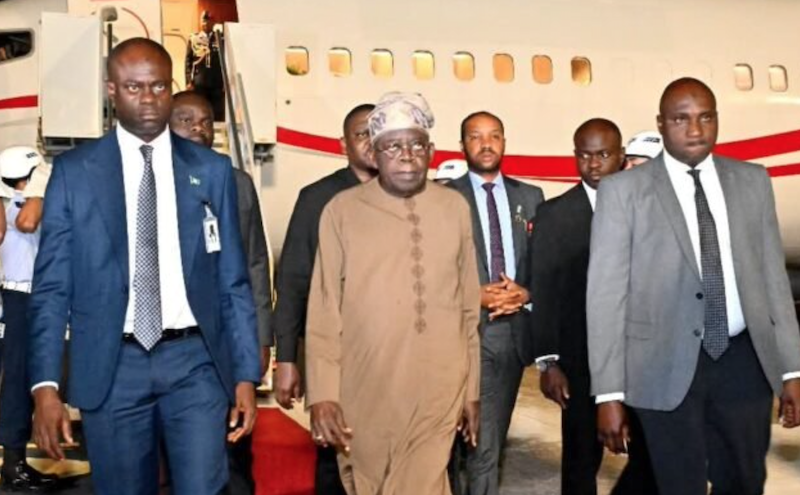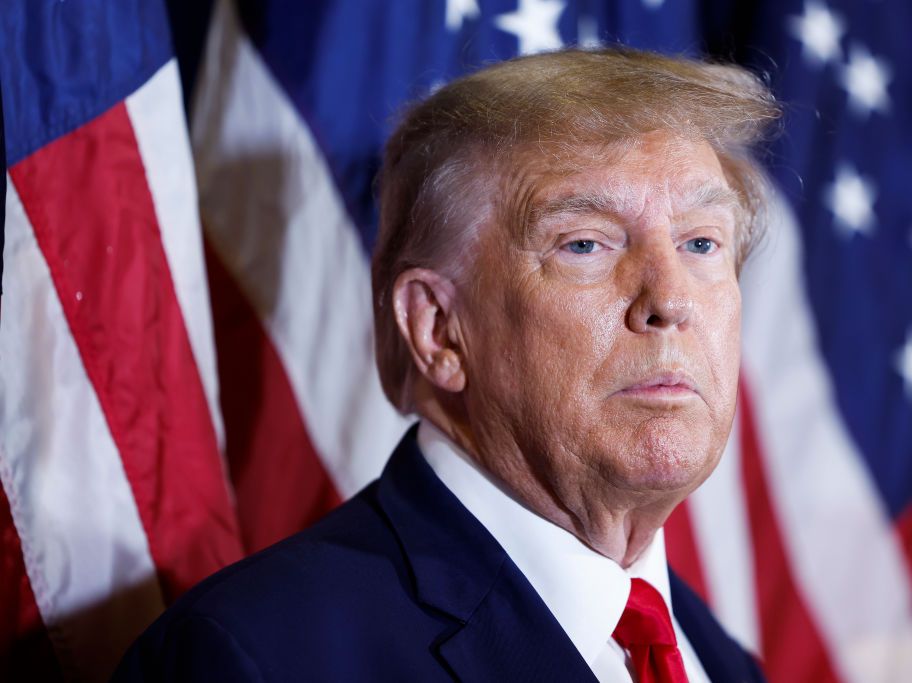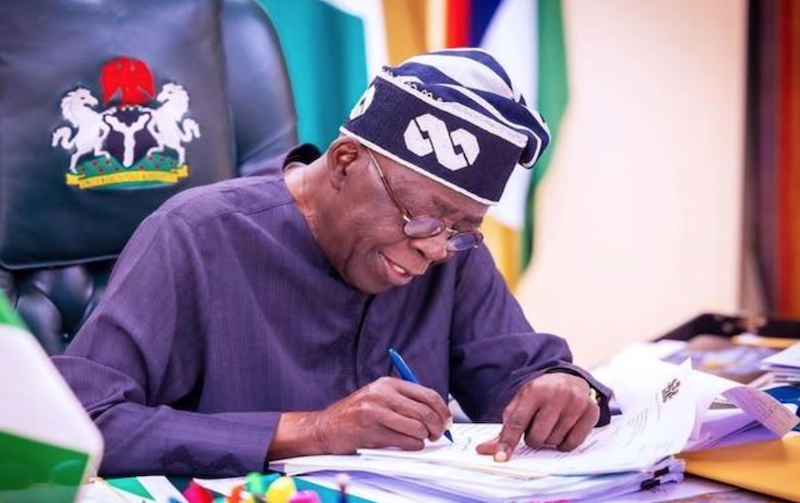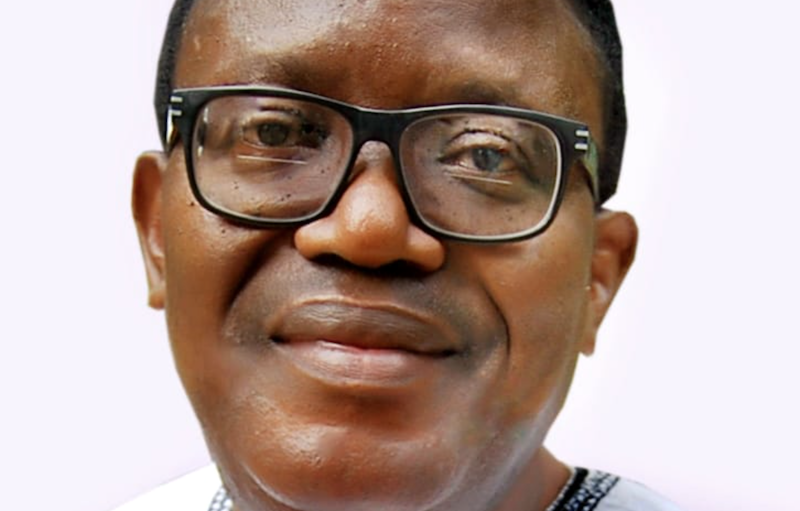President Bola Ahmed Tinubu is not just the President and Chief Executive Officer (CEO) of Nigeria, but also, figuratively speaking, the country’s chief salesman.
That is why, last week, he was in Brazil attending the BRICS summit held in the South American nation. BRICS is an acronym for a group of five countries that formed a coalition to serve as a rival or alternative to global institutions like the United Nations (UN).
It comprises Brazil, Russia, India, China, and South Africa—from which the acronym “BRICS” is derived.
In fact, the concept of BRIC was introduced by Jim O’Neill, a Goldman Sachs economist, in 2001. He coined the term “BRIC” (Brazil, Russia, India, and China) in a report highlighting the economic growth potential of those four countries.
Later, in 2010, South Africa joined the group, prompting the acronym to change to BRICS. Among the group’s core goals are the promotion of economic cooperation, development, and a more balanced global order among its members.
Additionally, BRICS has declared its aim to reform global financial institutions, promote sustainable development, and deepen economic collaboration among its member states.
After South Africa—an ally of Russia and China—was admitted in 2010, the BRICS group, in 2024, further expanded by welcoming Egypt, the United Arab Emirates, Iran, and Ethiopia as new members.
Nigeria, however, remains a partner nation, not a full member. Hence, its participation in the Brazil summit was as a partner, possibly considering future membership.
One might assume that in a pragmatic approach, Nigerian leaders are hedging their bets—perhaps why the country has yet to become a BRICS member, despite the group’s existence for nearly 25 years.
According to historical records, before South Africa was admitted in 2010, Nigeria was high on the list of African nations evaluated by Goldman Sachs as having significant growth potential and the capacity to be a global economic game changer.
By all economic fundamentals—and at a time when Nigeria’s economy was even larger than South Africa’s—our country seemed to qualify for inclusion on the list.
Yet, certain factors hindered Nigeria’s inclusion. Despite having the right fundamentals, including a larger economy (especially after the rebasing of its GDP, which placed Nigeria fourth in Africa), the country did not make the Goldman Sachs list.
Why didn’t Nigeria qualify for BRICS membership at inception, despite its economic size surpassing that of South Africa?
Though Nigeria had a larger economy, South Africa’s more diversified economic structure, stronger institutions, and deeper integration into the global system may have made it a more appealing candidate for BRICS membership.
Nigeria’s challenges—such as infrastructural deficits, security concerns, and lack of economic diversification—likely undermined its eligibility.
Ultimately, when Nigeria failed to meet the criteria in the Goldman Sachs matrix, South Africa, with a more robust and less corruption-ridden economy, emerged as the chosen candidate.
As things have turned out, after initially not qualifying and later remaining distant from BRICS for nearly 25 years, Nigeria finally engaged with the group as a partner country on January 17, 2025.
This step marks an expansion of BRICS’ global influence and deepens Nigeria’s economic and diplomatic ties with other emerging economies.
Without equivocation, the presumed aim of Nigeria’s partnership with BRICS is to enhance trade, investment, and infrastructure development opportunities, in alignment with BRICS’s core objective of fostering economic growth and cooperation among emerging markets.
Remarkably, had Nigeria been included in the group of countries expected to shape the global economy back in 2001—when Goldman Sachs economist Jim O’Neill conducted his seminal analysis—it could have been a founding member of BRIC. But for its shortcomings, including a low ranking on the corruption index, high levels of insecurity, and lack of economic diversification (challenges that still persist), the acronym might have been BRICN instead of BRICS.
That said, it is important to step back and explore more deeply the origins of BRICS, which emerged in 2001 as a counterforce to the United Nations (UN).
The original four countries—Brazil, Russia, India, and China—were identified based on their robust economic fundamentals and growth potential. They were expected to overtake some of the world’s leading economies. However, only China and India have so far lived up to those expectations.
With the global economy encountering turbulence, some of the originally selected countries, like Brazil, underperformed, while others, like Russia, went off course. Consequently, the Goldman Sachs analysis became less aligned with emerging economic realities.
Yet, in a move that could be described as “not letting sleeping dogs lie,” the current BRICS countries revived the BRIC concept—though not in the original economic context envisioned by O’Neill. Instead, the revival was driven by dissatisfaction with the post-World War II global order led by the West and institutionalized through the UN.
The core grievance among BRICS nations is that the UN’s operations disproportionately favor the interests of the global West—particularly the U.S. and its allies—at the expense of countries like Russia, China, India, Brazil, and other like-minded nations now in BRICS.
Perhaps viewing BRICS as a potential re-enactment of the Cold War-era polarization—when Russia led the Eastern Bloc and the U.S. led the West—the United States has begun mounting formidable brick walls against BRICS. One such move is the recent imposition of a 50% tariff on Brazilian exports to the U.S., set to take effect on August 1.
It’s worth recalling that during his first term (2016–2020), President Donald Trump threatened to impose a 100% tariff on BRICS nations. Now, in his second term (as both the 45th and 47th U.S. president), he has revived those threats—this time with a blanket 10% tariff on all BRICS nations. His justification is that BRICS is allegedly trying to undercut, undermine, or displace the U.S. dollar as the world’s reserve currency.
President Trump warned: “Any country aligning itself with the anti-American policies of BRICS will be charged an additional 10% tariff. There will be no exceptions to this policy.”
In this context, and given the “America First” ideology currently driving U.S. foreign policy, President Bola Tinubu of Nigeria finds himself facing a geopolitical dilemma: either align with the global West and the U.S., or collaborate with BRICS and risk sanctions.
Being a pragmatist and a master strategist, one is optimistic that President Tinubu possesses the geopolitical awareness and diplomatic dexterity to navigate these challenging global currents.
Ultimately, Nigerian leaders must act in the nation’s best interest. That means pragmatically striving to enjoy the best of both worlds—balancing relations between the established global West and the emerging BRICS power bloc. The ideal strategy may lie in maintaining a posture of strategic non-alignment—navigating both camps carefully without provoking either.
Historically, Nigeria has been a non-aligned nation, and there is little indication that this stance is changing, even in today’s complex geopolitical environment. For instance, Brazil—a BRICS founding member and an agricultural powerhouse—is well positioned to assist Nigeria in boosting agricultural productivity, which is a central pillar of the Tinubu administration’s policy agenda.
Nigeria’s longstanding caution in joining BRICS since its inception in 2001 likely stems from its desire to maintain strategic, long-term relationships with its allies in the global West. The inherent risks of aligning too quickly with a bloc seen as a counterforce to Western institutions may explain why Nigeria has consistently demurred from becoming a full member.
At this point, it’s important to underscore that Nigeria is not a member of BRICS. Rather, it currently holds the status of a partner nation, engaging with BRICS countries in areas such as trade, finance, and development.
As Dale Carnegie wisely noted, “Only knowledge that is used sticks in your mind.”
Nigeria must pursue its development goals strategically. Given Brazil’s long-standing partnership with Nigeria—exemplified by the fact that the Kaduna refinery was originally designed to process Brazil’s heavy crude, not Nigeria’s Bonny Light—it would be imprudent to ignore the opportunities for collaboration with Brazil. Brazil also offers a viable path to addressing Nigeria’s food insecurity crisis.
This is likely why President Bola Tinubu’s entourage to the BRICS summit in Brazil included key ministers—agriculture, environment, and water resources—as well as several governors from states rich in arable land and with strong potential for agricultural development.
One clear benefit of Nigeria reaching beyond its traditional allies in the global West to partners in the Global South, like Brazil, is evident in trade figures: Nigeria’s trade with BRICS countries reached ₦5.41 trillion in the first quarter of 2025—three times the volume of its trade with the United States in the same period.
Unsurprisingly, conspiracy theories have begun circulating, suggesting Nigeria’s growing association with BRICS is straining its relationship with the U.S. For instance, the recent U.S. decision to discontinue five-year multiple-entry visas for Nigerians—replacing them with three-month single-entry visas—has been interpreted in some quarters as a retaliatory move.
In response, the U.S. Mission in Nigeria issued a statement debunking these claims:
“This reduction is not the result of any nation’s stance on third-country deportees, the introduction of e-visa policies, or affiliations with groups like BRICS.
The reduction in validity is part of an ongoing global review of the use of U.S. visas by other countries using technical and security benchmarks to safeguard U.S. immigration systems.
We value our longstanding partnership with Nigeria and remain committed to working closely with the Nigerian public and government officials to help them meet those criteria and benchmarks, thereby ensuring safe, lawful, and mutually beneficial travel between our nations.”
Whether this is diplomatic speak—carefully chosen words to avoid offense and maintain cordial relations—remains to be seen. The true implications will likely become clearer as events unfold.
It’s worth remembering that at independence in 1960, Nigeria adopted a non-alignment policy—refusing to automatically side with either the Western or Eastern blocs during the Cold War.
Successive Nigerian administrations—from Abubakar Tafawa Balewa to Aguiyi Ironsi, Yakubu Gowon, Murtala Mohammed, Olusegun Obasanjo, Musa Yar’Adua, Goodluck Jonathan, Muhammadu Buhari, and now Bola Tinubu—have interpreted and applied this policy to varying degrees, depending on the personal philosophy and strategic interests of the sitting president.
Under General Ibrahim Babangida, for instance, Nigeria leaned more toward the global West, despite formally maintaining a non-aligned stance.
This context is vital when revisiting the tenure of Professor Bolaji Akinyemi, Nigeria’s former Minister of Foreign Affairs and now Chairman of the Nigerian Institute of International Affairs (NIIA). In the 1980s, Akinyemi proposed the establishment of a Concert of Medium Powers—a group similar in concept to BRICS—intended to allow mid-sized nations to collectively influence global affairs and contribute to international stability and development.
His proposal was rejected, and he was relieved of his position—presumably under pressure from Western powers uncomfortable with such a bloc. It’s also on record that Akinyemi once advocated for Nigeria to develop nuclear capability—dubbed the “Black Bomb”—which could have made Nigeria the first Black nation with a nuclear weapon. Again, Western opposition reportedly led to the idea’s dismissal.
Successive Nigerian governments have generally complied with the country’s non-alignment doctrine, as demonstrated by Nigeria’s refusal to become a full BRICS member over the past 25 years—until January 2025, when it joined as a partner nation.
As is often the case in politics, competing interpretations of diplomatic events abound. The recent mini-summit between U.S. President Donald Trump and five African heads of state in the White House on July 9th was spun by opposition figures in the Africa Democratic Congress (ADC) as a sign that the U.S. is shunning President Tinubu.
That assumption is misleading.
Nigeria, as a major African and global player, was never likely to be lumped in with the smaller countries that met with President Trump. Rather, like South African President Cyril Ramaphosa—who recently had a one-on-one meeting with Trump—President Tinubu is expected to have his own bilateral session with the U.S. president.
At the rate President Trump is currently engaging with Africa, he appears on track to meet more African leaders in a single term than President Barack Obama—a Black man—did in two full terms.
As I asked rhetorically in my February article titled “What If U.S. President Trump Shifts From Aid to Trade?”, in response to the U.S. pause on USAID programs in Africa:
“What if aid is replaced with trade?”
As if in direct response to that article, during his recent meeting with African leaders, President Trump declared:
“We’re shifting from aid to trade.
In the long run, this will be far more effective, sustainable, and beneficial than anything else that we could be doing together.”
While the withdrawal of U.S. aid may cause short-term discomfort, the long-term benefits—if Africa’s contribution to global trade rises, as Trump’s engagement may facilitate—could be transformative. It aligns with the age-old wisdom: “Don’t give me a fish; teach me how to fish.”
The U.S., in its position as the world’s economic hegemon, once tolerated trade deficits out of its self-appointed role as a global benefactor. But with its vast financial leverage and military might, President Trump has chosen to stop playing “Santa Claus” and is instead advocating reciprocal trade practices.
In contrast, Africa’s experience with unfair trade has largely been dictated by superpowers that exploit the continent’s vulnerabilities. This economic imbalance amounts to modern-day slavery, colonialism, and neo-colonialism.
That reality fuels my advocacy for Africa to embrace the disruptive tariff reforms being introduced by President Trump. These reforms may dismantle an old world order in which Africa is relegated to supplying raw materials and receiving finished goods—an extractive model that perpetuates underdevelopment.
My forthcoming book, “Africa: Importing Poverty, Exporting Wealth”, shines a spotlight on this systemic injustice. It is my hope that those who continue to exploit Africa’s weaknesses—and who seek to keep the continent metaphorically underwater—will finally apply the universal truth:
“Injustice anywhere is a threat to justice everywhere.”
Africa must be allowed to breathe.
The 1885 Berlin Conference, where European powers partitioned the continent, laid the foundation for the systemic subjugation that continues to plague Africa. It’s time to dismantle that legacy.
Magnus Onyibe, an entrepreneur, public policy analyst, author, democracy advocate, and development strategist, is an alumnus of the Fletcher School of Law and Diplomacy, Tufts University, Massachusetts, USA. He is a Commonwealth Institute scholar and a former commissioner in the Delta State government. He sent this piece from Washington DC.





